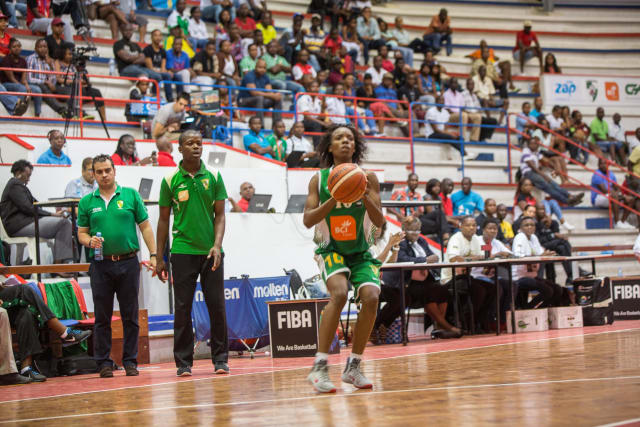Ferroviario de Maputo have officially become FIBA Africa Champions Cup Women 2017 title contenders
SHEFFIELD (Julio Chitunda's African Message) - With just over a week to the annual FIBA Africa Champions Cup Women (ACCW), the only way I can find to describe Ferroviario de Maputo is that they have become
SHEFFIELD (Julio Chitunda's African Message) - With just over a week to the annual FIBA Africa Champions Cup Women (ACCW), the only way I can find to describe Ferroviario de Maputo is that they have become real title contenders.
After outplaying continental powerhouses Primeiro D'Agosto in the opener of last week's FIBA Africa Zone 6 qualifier in Botswana and dispatched five-time ACCW winners InterClube de Luanda in the last day of the regional qualifier, the Mozambican champions made a clear statement of their ACCW ambition.
Ferroviario de Maputo 🇲🇿 stunned Reigning Champs Interclube 🇦🇴 78-73 to book spot to the Final Round! 👏 #FIBAACCW
— #FIBAACCW (@FIBAACCW) October 25, 2017
🔗https://t.co/pnQOjF82g1 pic.twitter.com/Bu6OtVp1Hg
They defeated all their six opponents to secure one of the two spots on offer for the FIBA Africa Zone 6 teams for the Final Round in Luanda, Angola from November 10-19.
The lesson we took from the qualifiers is that we now believe that we can beat Angolan teams" - Garcia
D'Agosto finished second, and as a result joined Ferroviario in the 12-team 2017 ACCW, while InterClube might get a wildcard.
Over the past few years, Ferroviario have threatened the Angolans' ACCW dominance time and time again.
Back in 2015, they finished in Third-Place.

A year ago - as ACCW hosts, Ferroviario were humiliated by InterClube, not once, but twice in front of the home crowd as they finished runners-up.
What happened to Ferroviario over the last twelve months is what head coach Inaki Garcia describes as "the maturity of the Mozambican players."
"We won the tournament because we played as a unity. Everybody contributed to the qualification, one way or another," the Spaniard play-caller told me.
Along with Ferroviario de Maputo and Primeiro D'Agosto, six other clubs from across Africa - including GS Petroliers (Algeria), First Bank (Nigeria), ASB Victoria and Darling Motema (both from the DR Congo), KPA and Equity from Kenya - have ensured their places in next month's ACCW showdown.
As Ferroviario assistant coach, Garcia witnessed first-hand his team being denied at home. So, I asked him what changes have been made since then.
 Inaki Garcia (left) is seen here during the ACCW 2016 in Maputo, Mozambique
Inaki Garcia (left) is seen here during the ACCW 2016 in Maputo, Mozambique
"Last year, we had no chance to win [the ACCW] because we lacked tenacity and experience," he replied.
"I don’t think Angola women’s basketball is experiencing a decline. The difference is that we are working very hard at youth levels. A few years ago, Angolan teams were far too superior comparing to Mozambican teams. Thankfully, that gap no longer exists, although financially, we can’t compete with them.
"The lesson we took from the qualifiers is that we now believe that we can beat Angolan teams."
While Garcia acknowledges that playing at FIBA Women's AfroBasket 2017 (Mozambique finished in fourth-place) has helped his players grow in confidence, he also admits that there is a long way to go.
"We need to be ready because now everyone is aware of what we are capable of doing," Garcia offered.
"Some say we must maintain the team’s competitiveness. I say no, we need to do better than that. We want to win the trophy. It won't be easy, but we'll play our very best to win it."
And, to help Ferroviario become the first Mozambican side to win the ACCW since Liga Desportiva in 2012, they brought in Argentina international Gisela Vega and South Sudan's Sarah Chan.
"These are two experienced and talented players that we needed to build a competitor team," Garcia explained.
The clock is ticking for ACCW title contenders, and this Mozambican side never looked so confident to win it.
Julio Chitunda
FIBA
FIBA's columnists write on a wide range of topics relating to basketball that are of interest to them. The opinions they express are their own and in no way reflect those of FIBA.
FIBA takes no responsibility and gives no guarantees, warranties or representations, implied or otherwise, for the content or accuracy of the content and opinion expressed in the above article.